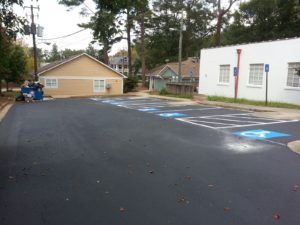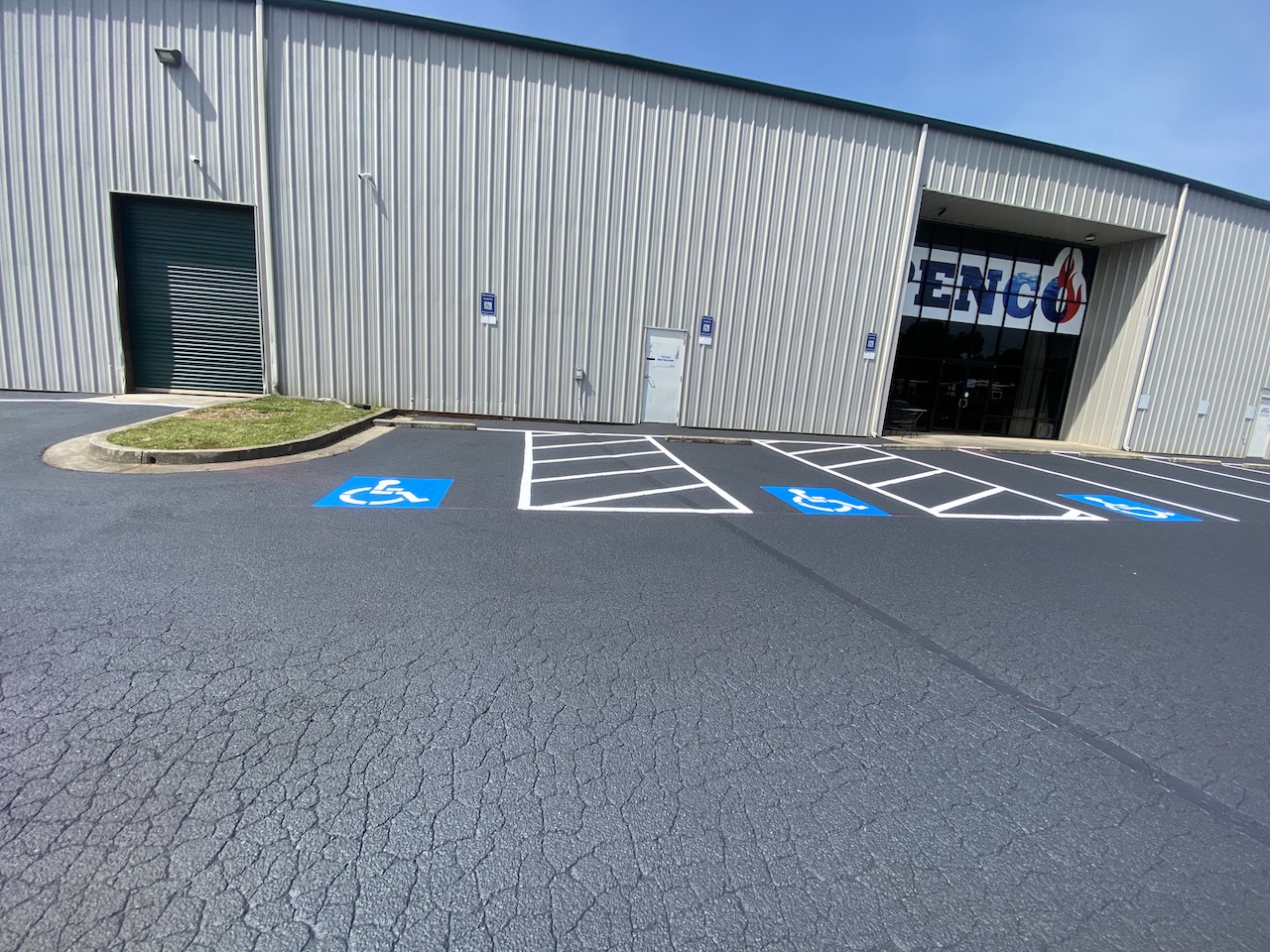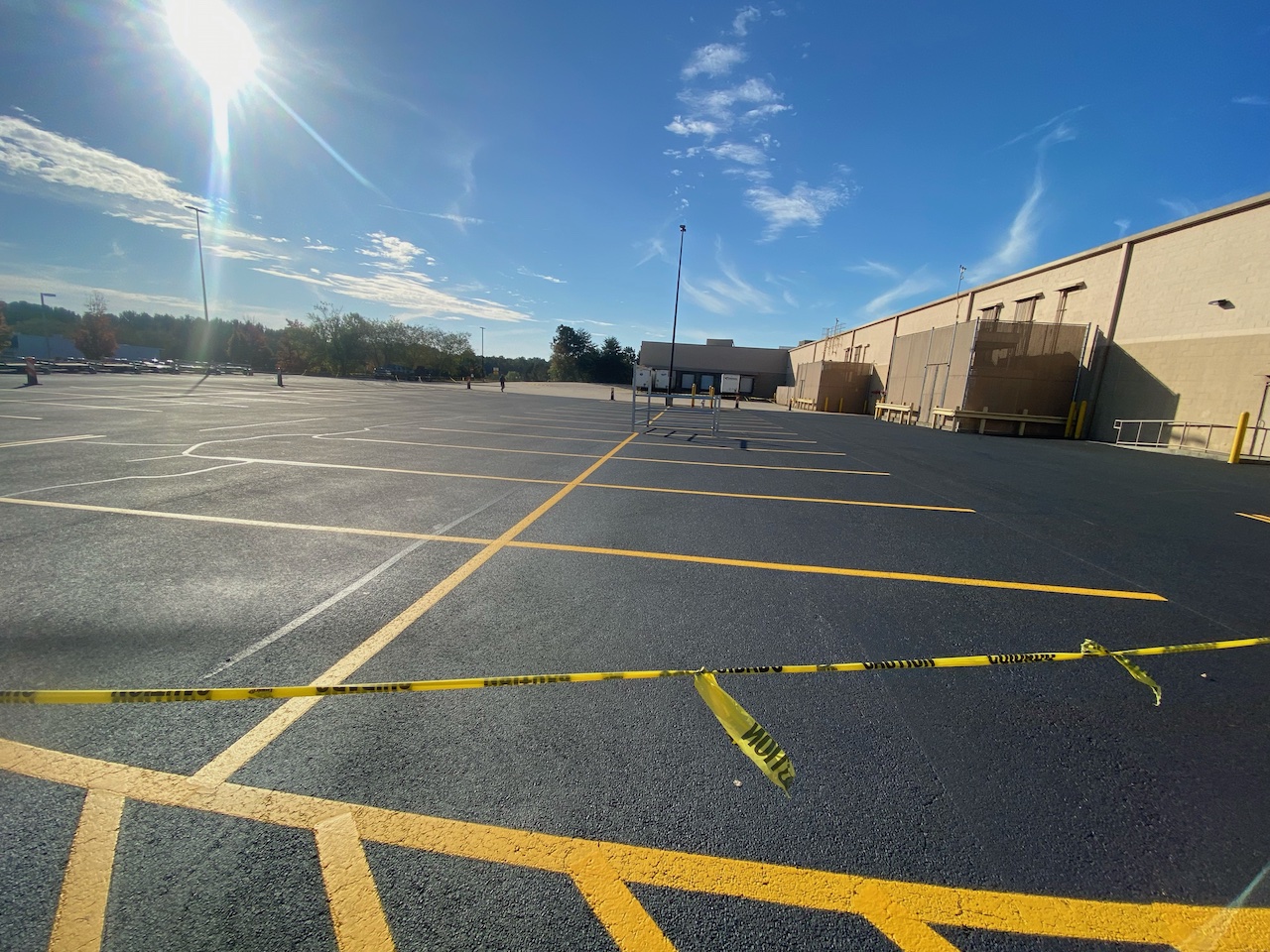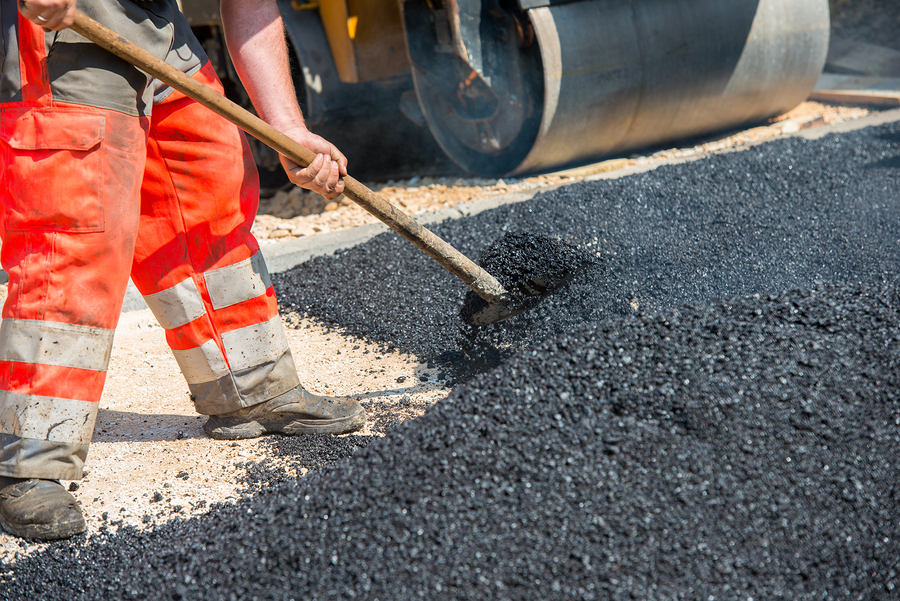
What Are the Pros and Cons of Sealcoating Your Pavement?
What Is Sealcoating?
Sealcoating is a procedure in which contractors apply a liquid material over the top of an asphalt pavement. As the sealcoating cures, it will create a hard shell that bonds to the pavement. Sealants are not for repairing a pot hole, crack, or other type of damage to asphalt pavement. Instead, they are part of a preventive maintenance program for your pavement that can help prevent damage from occurring in the first place.
What Are the Pros of Asphalt Sealcoating?
You can divide the benefits of asphalt sealing into two broad categories. Sealcoating protects, but it also improves the pavement’s aesthetic appeal.
1. Water is a formidable enemy of asphalt pavement. To be more precise, water can destroy the foundation on which the pavement depends for its flexibility, integrity, and strength. Sealcoating enhances asphalt’s waterproofing capabilities, but what is more important is that sealcoating helps prevent cracks, potholes, and other breaks that could provide water with an easy path to the foundation.
2. Sealcoating acts much like the sunscreen that people use to block the UV rays that can leave skin dry and damaged. By blocking the UV rays that remove moisture from the asphalt, sealcoating helps prevent premature drying of the pavement. In turn, the pavement will be less likely to develop significant cracks.
3. Most of the fluids used in modern vehicles are petroleum-based products. Asphalt is also a petrochemical, and when petroleum distillates meet, they try to recombine. This breaks down the asphalt holding the pavement together, leaving soft spots. Tires passing over these soft spots can quickly dislodge a substantial amount of material, initiating the development of a pot hole. Although petrochemicals can eat through sealcoating if given enough time, sealcoating delays their progress so that you have a chance to remove automotive fluids before they can hurt your pavement.
4. The sun’s rays fade the color of asphalt pavement, turning it from a luxurious black color to a dingy shade of brown or gray. Sealcoating can usually restore asphalt pavement to its original color.
5. Hairline cracks and minor imperfections can mar the beauty of your asphalt pavement. Sealcoating can cover these flaws so that the surface appears smoother and more even.
6. Asphalt sealing can add many years to the life of your pavement, but the prices charged by sealcoating contractors are quite economical. This makes sealcoating an extremely cost-effective maintenance procedure for all types of asphalt pavements.
What Are the Cons of Asphalt Sealcoating?
Given the many benefits you can gain from sealcoating, it may be a bit of a stretch to declare that the following points are disadvantages. Most property owners consider them to be relatively minor inconveniences rather than significant drawbacks.
1. Sealcoating does not last forever. Contractors sealcoating Atlanta parking lots, for example, usually find that the procedure needs to be repeated about every two years. Your pavement could need sealcoating less frequently, or it could need a yearly touch-up. It all depends on the age and condition of your pavement and the wear and tear it receives.
2. Asphalt contractors do not recommend sealcoating a new pavement until the pavement has cured. Curing can take up to 12 months, but it will usually be complete in three to six months. During this time, your pavement will be at greater risk for damage, so you will want to keep a close eye on its condition.
3. Sealcoating should never be applied over damaged pavement. If your pavement has potholes, cracks, or other damage, your contractor will need to make repairs before sealing the pavement.
4. Current road markings, parking lot stripes, and pavement markings will be obliterated by the sealcoating. Fortunately, however, painted markings typically have about the same life expectancy as sealcoating, so you can probably schedule both procedures at the same time.
Contact MH Greeson for help with all of your asphalt maintenance needs. We are a highly respected company serving the greater Atlanta area as well as many other towns in North Georgia. Our services include asphalt crack repair, asphalt sealcoating, pothole repair, parking lot striping and pavement marking, and the installation of car stops, bollards, and traffic signs. We have an exemplary reputation for craftsmanship and customer service, but our rates are extremely reasonable. Request a free quote by filling out our online form or calling 770-335-2983.




